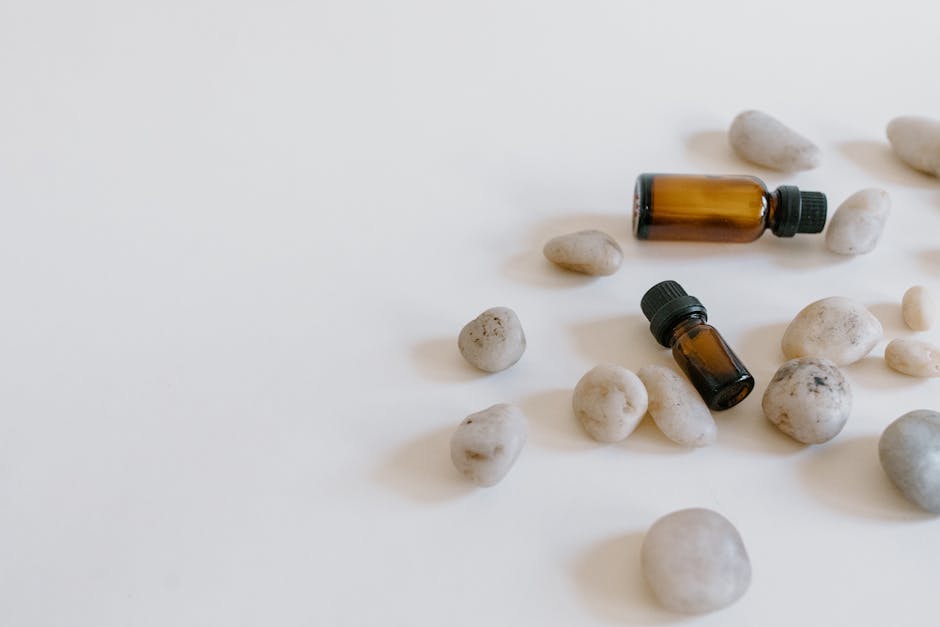Natural Remedies for Enlarged Prostate: A Comprehensive Guide to Relief
An enlarged prostate, also known as benign prostatic hyperplasia (BPH), is a common condition affecting men as they age. Characterized by an enlarged prostate gland, it can lead to uncomfortable and disruptive urinary symptoms. While medical interventions exist, many men seek natural remedies to manage their symptoms and improve their quality of life. This comprehensive guide explores various natural approaches, their potential benefits, and important considerations.
Understanding Benign Prostatic Hyperplasia (BPH)
Before delving into natural remedies, it’s crucial to understand BPH. The prostate gland, located below the bladder, surrounds the urethra – the tube that carries urine from the bladder. As men age, the prostate often enlarges, putting pressure on the urethra and hindering the flow of urine. This can result in symptoms such as:
- Frequent urination, especially at night (nocturia)
- Weak or interrupted urine stream
- Difficulty starting urination
- Urgency and inability to delay urination
- Feeling of incomplete bladder emptying
- Straining during urination
The severity of symptoms varies significantly among men. While some experience minimal discomfort, others face significant urinary problems impacting their daily lives. It’s essential to consult a doctor for diagnosis and to rule out other potential conditions.
Natural Remedies for Enlarged Prostate: A Closer Look
Several natural remedies have shown promise in managing BPH symptoms. However, it’s crucial to remember that these remedies are not a replacement for medical advice and treatment. They should be used in conjunction with, and under the guidance of, your healthcare provider.
1. Saw Palmetto
Saw palmetto berries have been used for centuries to treat urinary problems. Studies suggest it may help reduce BPH symptoms by inhibiting the conversion of testosterone to dihydrotestosterone (DHT), a hormone implicated in prostate enlargement. While some studies show positive results, more research is needed to confirm its effectiveness consistently.
2. Pygeum Africanum
Extracts from the bark of the Pygeum africanum tree are another popular natural remedy for BPH. It’s believed to work by reducing inflammation in the prostate and improving urine flow. Similar to saw palmetto, the evidence supporting its efficacy is mixed, with some studies showing promising results and others yielding inconclusive findings.
3. Beta-Sitosterol
Beta-sitosterol is a plant sterol found in various plants. It’s believed to improve urine flow by reducing inflammation and improving the prostate’s ability to function properly. Some studies indicate that beta-sitosterol may be as effective as some medications in relieving BPH symptoms. However, larger, well-designed studies are needed to confirm these findings.
4. Stinging Nettle
Stinging nettle root extract has demonstrated potential in reducing BPH symptoms. It’s thought to inhibit the production of DHT, similar to saw palmetto. Several studies suggest it can improve urine flow and reduce the frequency of urination. More research is needed to determine its long-term effectiveness and optimal dosage.
5. Pumpkin Seed Oil
Pumpkin seed oil is rich in zinc and other nutrients that may benefit prostate health. Some studies suggest it may improve urinary symptoms and reduce prostate inflammation. However, more research is necessary to confirm its effectiveness in managing BPH.
6. Diet and Lifestyle Modifications
Alongside herbal remedies, lifestyle changes can significantly impact BPH symptoms. A healthy diet plays a crucial role. Consider these adjustments:
- Reduce fat intake: A diet high in saturated and trans fats can exacerbate inflammation.
- Increase fiber intake: Fiber promotes regular bowel movements, which can alleviate pressure on the prostate.
- Hydration: Drink plenty of water throughout the day to flush out the urinary system.
- Limit alcohol and caffeine: These substances can irritate the bladder and worsen urinary symptoms.
- Maintain a healthy weight: Obesity can contribute to prostate enlargement.
- Regular exercise: Physical activity can improve overall health and potentially reduce BPH symptoms.
7. Stress Management
Stress can worsen BPH symptoms. Practicing stress-reduction techniques such as meditation, yoga, or deep breathing exercises can be beneficial. Finding healthy coping mechanisms for stress is crucial for overall well-being.
Important Considerations and Precautions
Before using any natural remedy for BPH, consult your doctor. Some herbal remedies may interact with medications you’re taking, leading to adverse effects. Your doctor can assess your specific situation and determine if these remedies are appropriate for you. Furthermore, it’s essential to understand that natural remedies may not work for everyone, and results can vary.
Always purchase herbal supplements from reputable sources to ensure quality and purity. Be cautious of products making unrealistic claims or lacking proper labeling and information. If you experience any adverse effects after starting a natural remedy, stop using it and consult your doctor immediately.
When to See a Doctor
While natural remedies can help manage BPH symptoms, it’s crucial to seek medical attention if you experience:
- Severe urinary problems significantly impacting your daily life
- Blood in your urine
- Urinary retention (inability to urinate)
- Sudden changes in urination patterns
- Pain during urination
Your doctor can conduct a thorough examination, including a digital rectal exam (DRE) and possibly other tests, to diagnose BPH and rule out other potential causes of your symptoms. They can then discuss appropriate treatment options, which may include medication, minimally invasive procedures, or surgery, depending on the severity of your condition.
Conclusion
Natural remedies can offer a complementary approach to managing BPH symptoms. However, they should be used under the guidance of your healthcare provider. A holistic approach that combines natural remedies with lifestyle modifications and medical supervision is often the most effective strategy for achieving optimal relief and improving quality of life.

